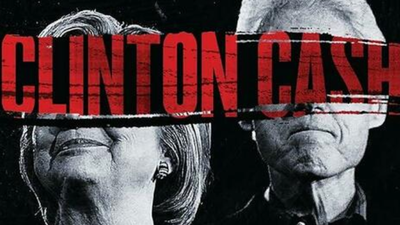
| Published August 25, 2025
Shocking New Documents Expose Multi-Front Effort to Protect Clintons While Framing Trump
A recent article on ZeroHedge alleges the existence of documents that reveal a coordinated effort by government actors to shield the Clintons from legal scrutiny while framing former President Donald Trump. These documents, if authentic, could have played a significant role in shaping public perception and influencing political outcomes during and after Trump’s presidency.
The article claims that multiple fronts of government investigation, media reporting, and political maneuvering were involved in protecting the Clintons. While the story paints a dramatic picture of political intrigue, it is important to note that ZeroHedge has a reputation for publishing content that sometimes aligns with conspiracy theories and lacks traditional journalistic verification. Therefore, readers should approach these claims with caution and cross-reference with reliable sources.
 Implications
Implications
-
Erosion of Public Trust in Institutions
Claims of coordinated efforts to protect certain political figures while targeting others can deepen skepticism toward institutions like the FBI, DOJ, and other investigative bodies. This erosion of trust can make it harder for these institutions to operate effectively and maintain credibility with the public. -
Intensified Political Polarization
Allegations of selective justice may exacerbate divisions between political factions. Supporters of Trump may feel validated, while opponents may view the claims as baseless, reinforcing entrenched partisan identities and reducing willingness to engage in constructive dialogue. -
Media Credibility Challenges
Outlets like ZeroHedge gain attention for publishing controversial claims, while mainstream media may be criticized for either ignoring or disputing these narratives. This dynamic can increase audience fragmentation, as people gravitate toward sources that confirm their preexisting beliefs. -
Impact on Future Elections
Political narratives suggesting bias or corruption can shape voter perceptions, influencing campaign strategies, voter turnout, and support for particular candidates. Such effects may extend beyond immediate election cycles and affect long-term political alignment. -
Social Media Amplification and Misinformation
Controversial claims tend to spread quickly online, especially on platforms like Twitter, X, Facebook, and TikTok. This amplification can create echo chambers where misinformation persists, sometimes reaching audiences who may not fact-check the information. -
Legal and Investigative Repercussions
If the documents referenced are verified as authentic, they could prompt renewed congressional hearings, DOJ inquiries, or other legal actions. This could have tangible consequences for the individuals involved and potentially lead to policy or procedural changes within government institutions. -
Reputational Impacts on Key Figures
Both the Clintons and Trump could experience renewed scrutiny, regardless of the authenticity of the claims. Public perception of their integrity, decision-making, and political legacy may be influenced, impacting their ability to shape public discourse or participate in political activities. -
Long-Term Societal Effects
Narratives of corruption and selective justice can contribute to cynicism about the political system, potentially discouraging civic engagement, undermining trust in democratic processes, and fostering a culture of political apathy or radicalization. -
Global Perception of U.S. Politics
International audiences may interpret these allegations as evidence of instability or bias within American political and legal institutions, affecting the country’s global reputation, diplomatic relationships, and soft power influence.
 Overall Takeaway:
Overall Takeaway:
The documents discussed in the ZeroHedge article, if authentic, suggest a coordinated effort that could have influenced public perception, political outcomes, and trust in American institutions. Regardless of their veracity, the narrative highlights the intense polarization that characterizes modern U.S. politics and the challenges citizens face in discerning fact from conjecture.
This story underscores the importance of transparency, accountability, and critical thinking in evaluating politically charged information. Readers are encouraged to verify claims through multiple reputable sources and consider the broader implications for democracy, media credibility, and public trust. Ultimately, the debate over these allegations reflects not only the contentious nature of U.S. politics but also the vital role of informed, engaged citizenship in holding power to account.





Be the first to comment